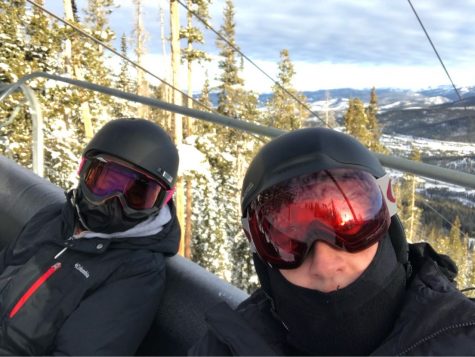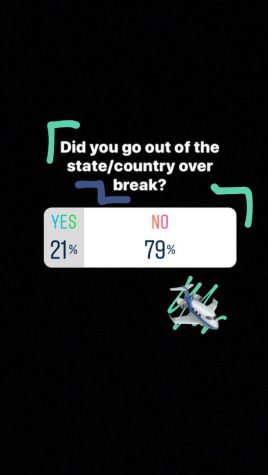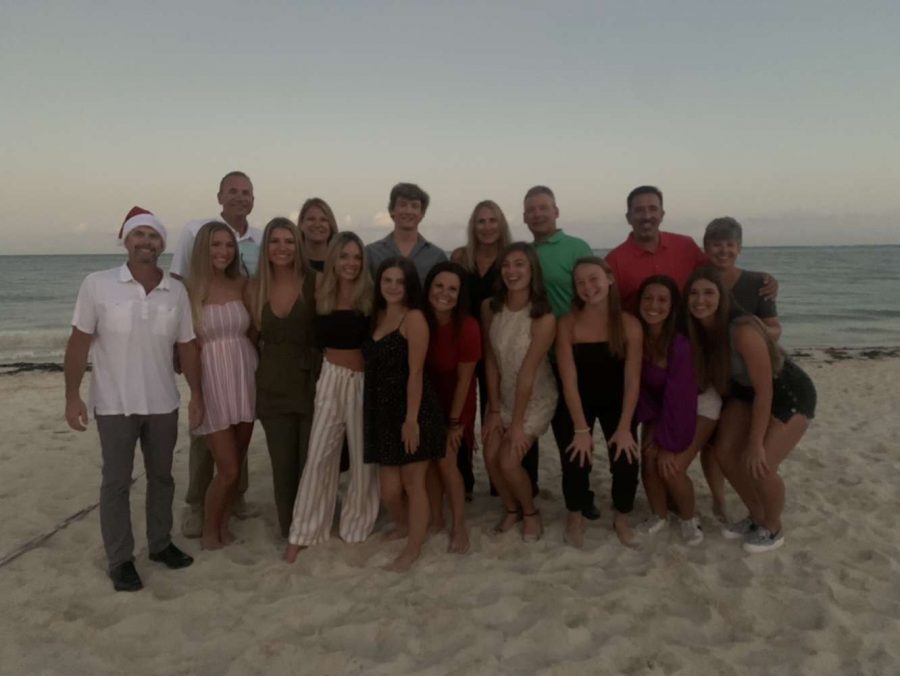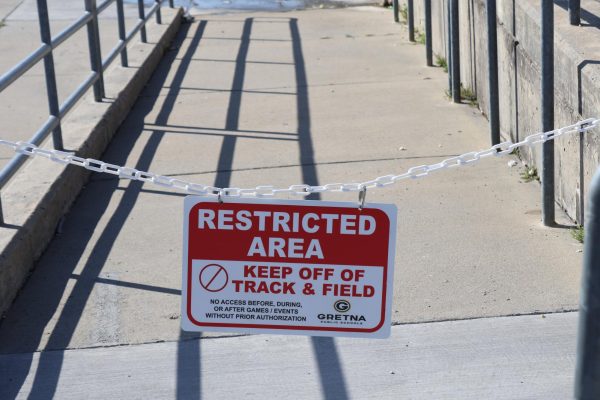Traveling Over Christmas Break Different from Last Year
COVID-19 Takes Over Christmas
Say ‘Cheese’: Klare Peters (24) and her family photographed in Cancun, Mexico
Traveling during Christmas break is something that families partake in every year. For many families this year, traveling is different from previous years. Families were restricted from participating in normal Christmas/ New Years activities because of the contagious virus.
“Masks were required when we went on the ski lifts (in Winter Park, Colorado),” freshman Aidan Roumph said.

“I saw a lot of people who weren’t wearing masks; they didn’t really care. The huts were not open, and if you wanted to eat, you had to go back to your car.”
Traveling this year can increase chances to contract and spread the virus. Popular vacation destinations have a higher risk than less visited areas. According to the CDC, popular vacation countries like Mexico, Jamaica, Philippines, Japan, Jamaica, etc. have a very high risk assessment level for COVID-19.
Freshman Klare Peters and her family flew to Texas, and then visited Cancun, Mexico over break.
“Masks were required at restaurants, and on the airplane.” Peters said. “No masks were required at the pool or in the resort.”
According to the CDC, you should get tested before you decide to travel. Although there are strict guidelines when it comes to COVID-19 precautions, many people do not follow them.
“I was concerned because there were a lot of people at the Denver airport,” Roumph said. “A lot of people were taking off their masks and not social distancing.”
Airports have been more strict with travel restrictions. Airplanes have also added new restrictions for the holidays. Freshman Libby Turpen flew to Galveston, Texas as a safer risk option than Mexico with her family over break.
“(The requirements on the plane) were masks on at all times,” Turpen said. “The airport tried to social distance us as much as possible. There were some drinks and snacks. There were not many people on the plane; (the plane) was only filled to about 35% capacity.”
Depending on the travel destination, and how crowded the airplanes are, restrictions can be more or less strict. Leaving the state is a risk, but leaving the country is even more of a risk. So why do people leave the state/country to travel during the pandemic?
“Christmas was different for my family this year,” Peters said. “My grandparents were concerned because of the area we live in and the high rates. They didn’t want us to come down and visit. We couldn’t see family over Christmas so we went to Mexico.”
COVID-19 precautions do not stop when you get done traveling. COVID-19 precautions should be taken before, during, and after traveling this year. According to the CDC, begin practicing social distancing 14 days before you plan on leaving, pack hand sanitizer, extra masks, get tested 3-5 days after travel, and reduce all non-essential activities for 7 days, even if you have tested negative.
“I have been seeing my friends and distant family as little as possible since COVID-19 started,” Peters said. “I have been wearing my mask, social distancing, and wearing hand sanitizer since I got back from the trip to keep everyone safe.”


Taylor Eurek is a sophomore at GHS. This is her second year on The Voice. She is involved in journalism because she likes writing...







